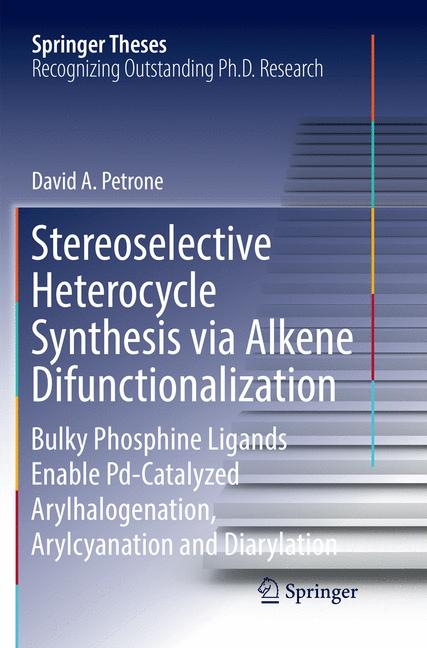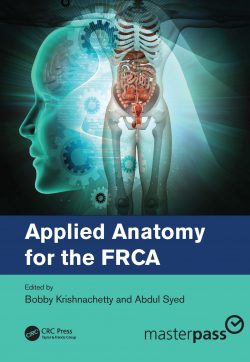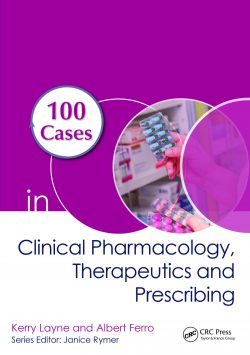This book investigates the use of palladium modified by bulky ligands as catalysts for new chemical transformations that rapidly assemble several classes of complex heterocyles. It documents the development of new chemical reactions involving carbon–carbon (C‒C) and carbon–halogen (C‒X) bond formation in the context of alkene difunctionalization and dearomatization reactions. Due to the ubiquity of heterocycles in bioactive natural products and life-improving pharmaceutical treatments, a long-term goal for synthetic organic chemists has been to develop novel and creative heterocycle syntheses that illicit a high degree of product diversity and are characterized by mild reaction conditions and limited waste production. A considerable fraction of leading pharmaceutical drugs contain at least one heterocycle within their chemical structure, and their prevalence in these technologies is strong evidence that the fundamental curiosities of organic chemistry lead to real-world solutions for the health and wellness of the global population.
Diastereoselective Synthesis of Heterocycles via Intramolecular Pd-Catalyzed Alkene Aryliodination.- Pd-Catalyzed Diastereoselective Carbocyanation Reactions of Chiral N-Allyl Carboxamides and Indoles.- Development of a Pd-Catalyzed Dearomative 1,2-Diarylation of Indoles using Aryl Boron Reagents.- Harnessing Reversible Oxidative Addition: Application of Diiodinated Aromatic Compounds in Aryliodination.
David A. Petrone was born in Scarborough, Canada in 1989. He obtained his B.Sc. in Chemistry with Honors from the University of Guelph in 2011 and his Ph.D. in 2016 from the University of Toronto under the supervision of Prof. Mark Lautens. He was awarded both the Boehringer Ingelheim Award of Excellence in Organic Chemistry and the Chair’s Doctoral Medal for the work contained in this thesis. He is currently an NSERC postdoctoral fellow in Prof. Erick M. Carreira’s group at the Laboratory of Organic Chemistry at the ETH Zürich.
This book investigates the use of palladium modified by bulky ligands as catalysts for new chemical transformations that rapidly assemble several classes of complex heterocyles. It documents the development of new chemical reactions involving carbon–carbon (C‒C) and carbon–halogen (C‒X) bond formation in the context of alkene difunctionalization and dearomatization reactions. Due to the ubiquity of heterocycles in bioactive natural products and life-improving pharmaceutical treatments, a long-term goal for synthetic organic chemists has been to develop novel and creative heterocycle syntheses that illicit a high degree of product diversity and are characterized by mild reaction conditions and limited waste production. A considerable fraction of leading pharmaceutical drugs contain at least one heterocycle within their chemical structure, and their prevalence in these technologies is strong evidence that the fundamental curiosities of organic chemistry lead to real-world solutions for the health and wellness of the global population.
Nominated as an outstanding Ph.D. thesis by the University of Toronto, Canada
Includes extensive background literature on Pd-catalyzed cross-coupling chemistry and catalytic carbon–halogen bond formation
Presents clear figures and schematics that provide the reader with an intuitive guide





